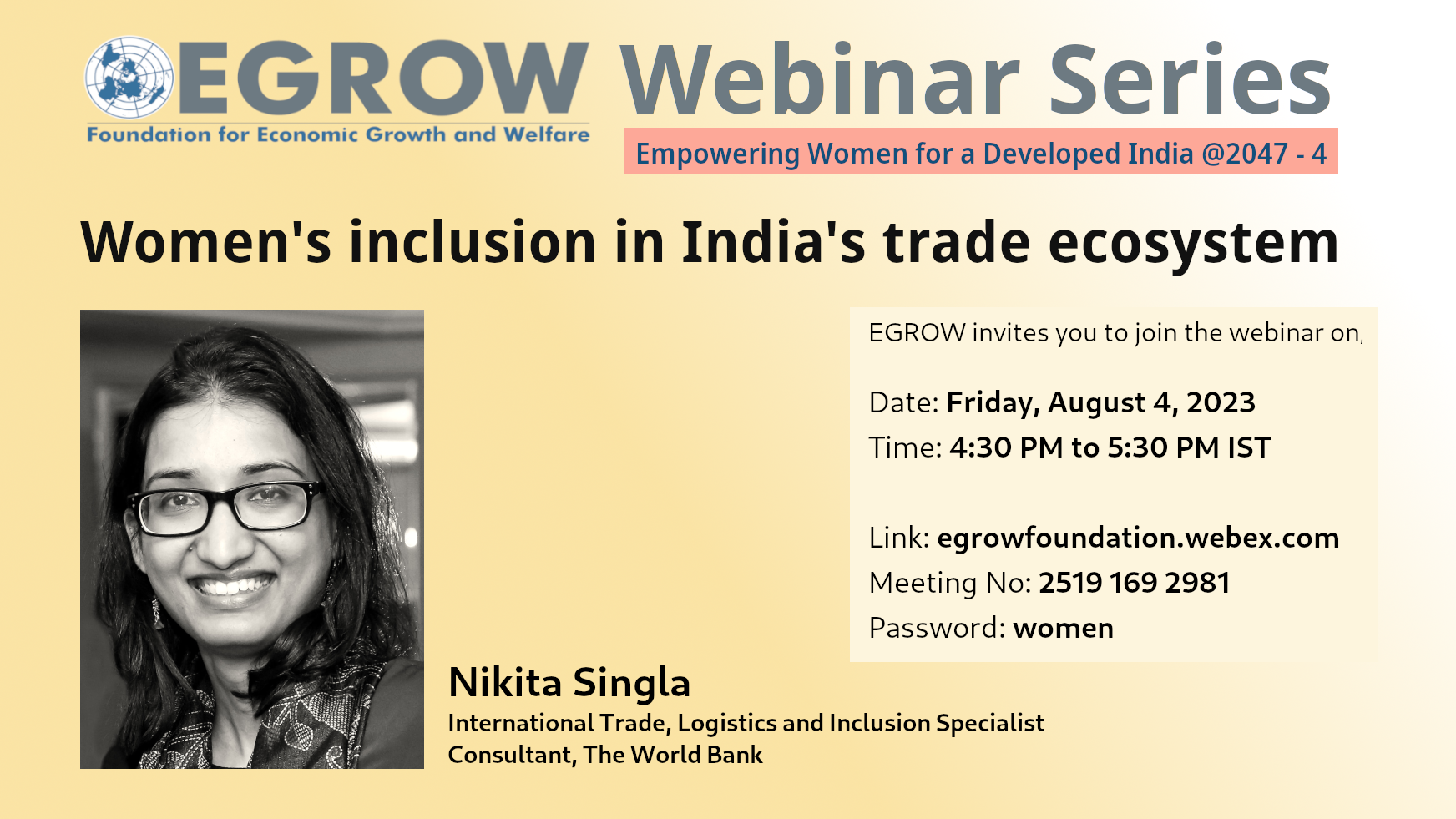Women's inclusion in India's trade ecosystem

Webinar Link
Meeting No: 2519 169 2981
Password: women
Certificate of Participants
To recieve certificates, please register and attend
Abstract
Trade policy cannot be gender-neutral in a world where women enter a trade with a pre-existing disadvantage, built on social, institutional, and structural constructs. It needs to counter the disadvantage and bring women and men to a level playing field, at the very least. However, the ability of women to participate effectively in trade is dependent on more than what trade policy can address alone. It requires trade policy, domestic reforms, and capacity-building initiatives (including digital, financial literacy, and other trade-related skills) to work in parallel. This policy brief lays the foundation of how a more equitable and inclusive trade ecosystem can enable India to make greater strides in regional partnerships, primarily the Indo-Pacific Economic Framework for Prosperity. It details some of the key ongoing initiatives to improve women’s participation in international trade and presents actionable recommendations for addressing gender gaps in India’s trade ecosystem and how doing that is central to India accomplishing its Indo-Pacific goals.
About the Speaker
Nikita Singla
Nikita Singla is Associate Director at New Delhi-based Bureau of Research on Industry and Economic Fundamentals (BRIEF). Over the last decade, she has focused on Regional Cooperation, International Trade and Logistics, Economic Integration, Overseas Development Assistance, and Women Empowerment with a focus on South Asia.
She has also worked with the World Bank Group’s Macro, Trade and Investment Practice, based in Washington DC and continues to consult with different multilateral institutes including the World Bank and the Asian Development Bank on trade and logistics-related issues. She is a part of the Advisory Council of TalentNomics India, a non-profit organization working towards creating a gender equitable South Asia.
She is an Engineer from Indian Institute of Technology (IIT) Delhi and studied International Economic Policy from Sciences Po Paris.